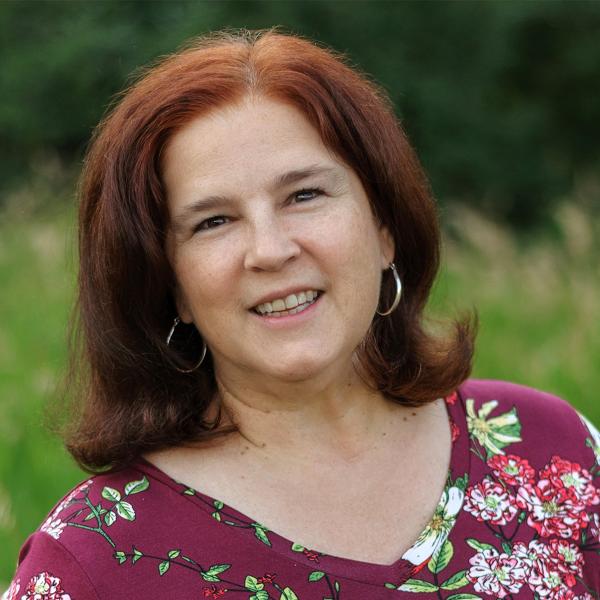How an Emergency Surgery Plus a Pandemic Epiphany Led to Joy in a New Journey

In 2015, a month after starting my own communications consulting business, I got the flu — or so I thought. I vomited all night and didn’t feel better. By the following afternoon, the pain in my gut had intensified on my lower right side, and I knew I was in trouble.
I had just switched to my husband’s insurance plan and had seen a thick envelope arrive in the previous day’s mail. I found it, ripped it open, and called the number for the nurse line. The nurse insisted I go to the hospital immediately. Four hours later, I had an emergency appendectomy.
As the medical bills started piling up, I was astonished at the costs. “This is what I owe with insurance?” I thought. “What if I didn’t have insurance? I would be paying hospital bills for years!”
The bills were confusing: One for the MRI; one from the surgeon; multiple bills from the hospital. I also received a past-due invoice for out-of-network anesthesiology provider services performed at an in-network hospital. I later understood I was one of many victims (nearly one in three Coloradans) of questionable billing practices that Colorado’s 2020 surprise billing legislation tried to address.
Several years earlier, I had watched the debate about the Affordable Care Act (ACA) with interest. My biggest hope for that legislation at the time was that it would prevent insurance companies from withholding coverage based on preexisting conditions. Most people are afraid of something: spiders, heights, maybe flying, or needles. Until the ACA became law, I worried that insurance companies would somehow be allowed to drop my coverage because of my asthma.
After my appendicitis, that fear was replaced with a new one — financial ruin caused by medical debt. According to a 2016 report by the Kaiser Family Foundation, 66% of medical debt comes from a one-time medical issue; and 62% of patients who incurred the debt were covered by health insurance at the time. A 2019 editorial published in the American Journal of Public Health showed that 66.5% of all bankruptcies are linked to illness or medical bills.
The cost of managing my asthma pales compared to treating conditions like heart disease, kidney failure, or cancer. We survived the cost of emergency surgery, but what was next? It felt like a matter of time.
What came next was COVID-19. Hundreds of thousands lost their jobs and, in many cases, their insurance coverage overnight. Some of those were already sick or would become infected and hospitalized with the virus. Millions of others had to work in essential positions, putting themselves at risk.
The global pandemic made clear to me that many aspects of health and risk have nothing to do with medical insurance coverage. Whether someone has a place to live or requires public transportation to get to work matters for their health. It was now easy to see how these social determinants affect everyone. This reality, coupled with my growing understanding of the short- and long-term consequences of the pandemic, was overwhelming. At the same time, I began to feel guilty because I had so much to be thankful for: I didn’t get COVID-19; I have internet and can work from home; I have stable housing and transportation. I recognized my privilege, but didn’t know how to give back, let alone resolve the inequities.
As the pandemic wore on and other states began opening early and dealing with new waves of infection, I also began to understand the important role of government agencies and officials in our day-to-day lives. In Colorado, we have a lot of challenges, but it seemed that our state and local officials worked together (for the most part) and listened to the advice of public health officials who were doing their best to keep us all safe.
In 2021, I started working with the Colorado Health Institute (CHI). One of the first things I edited was an evaluation of Colorado’s Co-Responder Program – which pairs mental health professionals with law enforcement in an effort to make sure people are receiving the care and services they need – that CHI had conducted for the Colorado Department of Human Services Office of Behavioral Health. “Wow! This is interesting work!” I thought. I quickly recognized that these folks know how to address many of the systemic problems that had seemed so impossible to me — and they have been doing this work for nearly 20 years.
Many of CHI’s efforts directly affect my community, including the work the organization did with public health agencies to coordinate guidance for a safe reopening after the pandemic. And CHI’s Colorado Health Access Survey captured information about people like me who experienced surprise bills after events like my emergency appendectomy.
As the newest member of CHI’s communications team, I’m looking forward to being part of the organization’s work to inform policy and decision making — and to supporting evidence-based policies that improve the health of all Coloradans. And after a crazy pandemic year, I’m glad to have found communications work that I love and a way to make a difference.
Related Blogs and Research

